Blog Promoting daily fruit and vegetable consumption in Vietnam and Nigeria
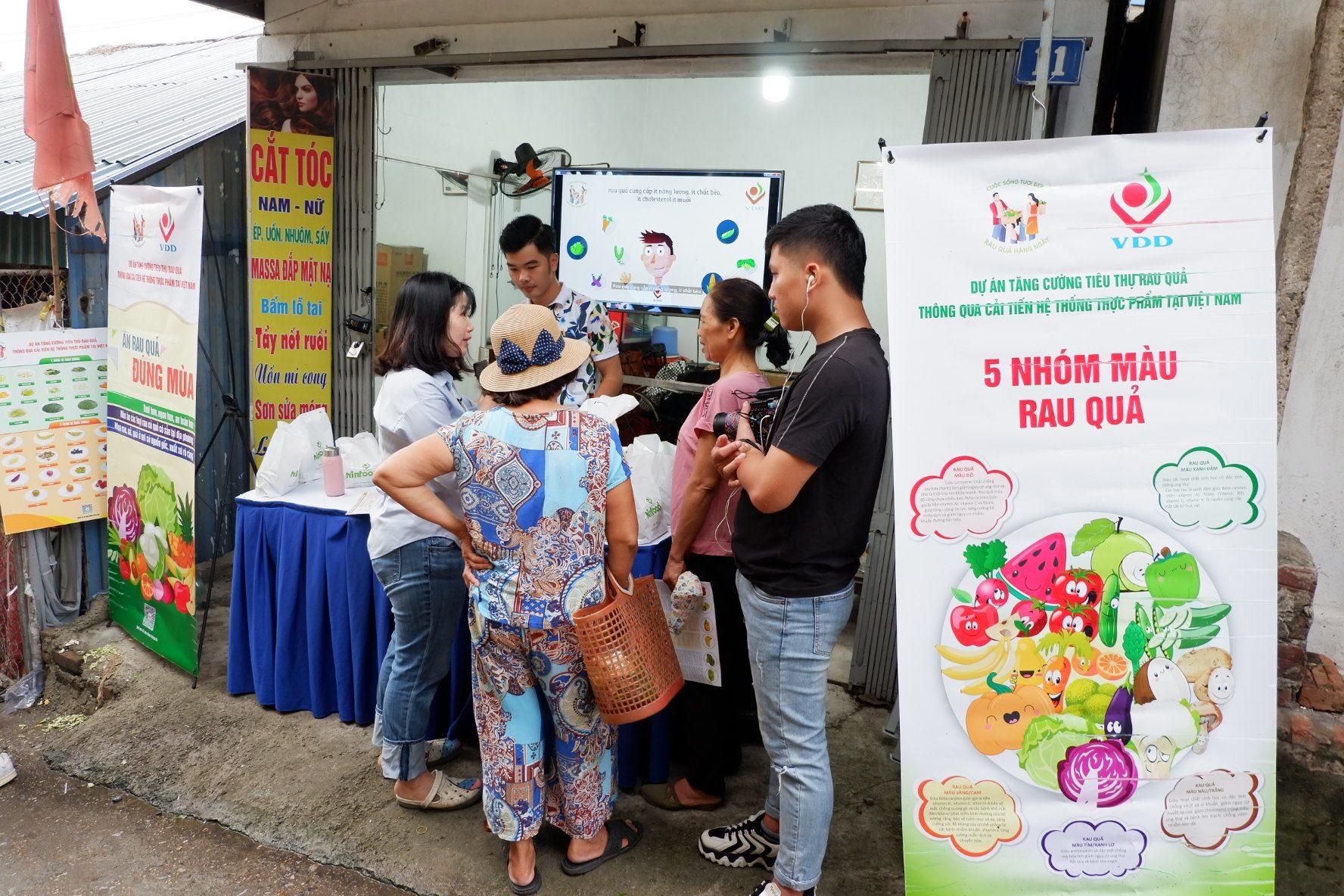
Researchers and national partners are working directly with community members to co-create public campaigns that encourage consumers to adopt healthier diets in the cities of Hanoi and Ibadan.
“Fruits and vegetables are good for the body (Èso àti Ewébẹ̀ ń ṣara lóore).”
“For a beautiful life, add vegetables and fruits to your daily meals (cuộc sống tươi dẹp rau quả hang ngày).”
These are the campaign slogans put forth by residents of Ibadan and Hanoi, respectively, to encourage more fruit and vegetable consumption in their neighborhoods. The WHO recommends that adults consume at least 400 grams of fruits and vegetables daily but only around 20% of Vietnamese people and 27% of residents in Lagos State, Nigeria were found to be reaching these targets in recent studies. Low fruit and vegetable consumption is a concern worldwide that is contributing to the development of non-communicable diseases such as heart disease and certain cancers. 2021 was declared the International Year of Fruits and Vegetables in recognition of the importance of these foods.
The Alliance of Bioversity International and CIAT has partnered with the University of Ibadan and the Vietnamese National Institute of Nutrition (NIN) since 2018 to identify drivers of fruit and vegetable consumption and to co-create promotional campaigns to raise their acceptability among low-income residents in Ibadan and Hanoi. Approximately 20 residents of the focal neighborhoods in both cities were engaged in the co-creation process. In dialogue with researchers through a series of workshops, the groups designed promotional campaigns to encourage their neighbors to eat more of these nutritious and delicious foods.
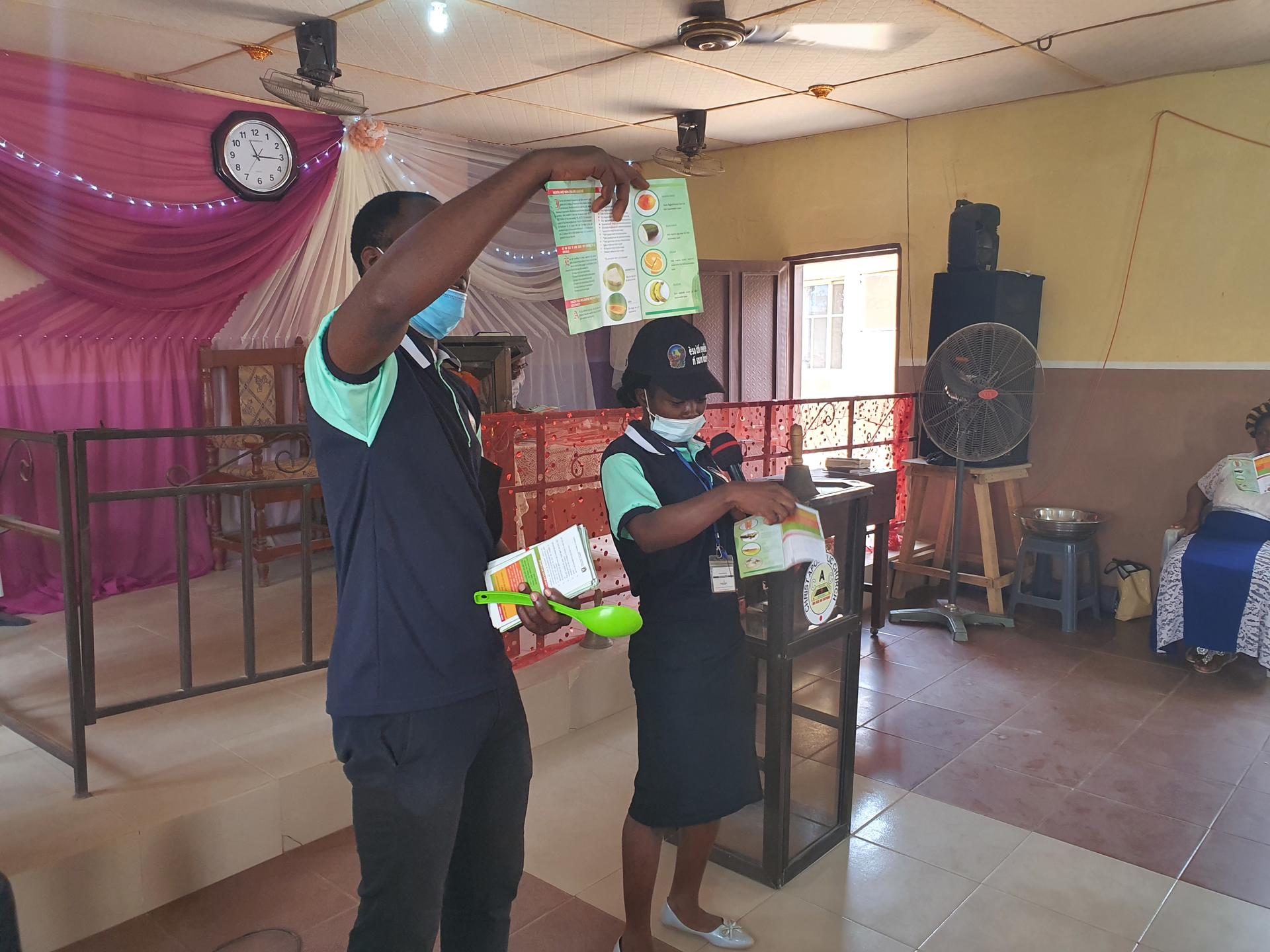
Announcement in a place of worship in Ibadan. Photo credit: Bamsa, G.
In Ibadan, the campaigns have involved sharing messages about fruits and vegetables at places of worship and schools, as well as broadcasting jingles, dramas and expert talks on popular local radio stations. The radio spots have reached audiences across Ibadan, sparking awareness that “at these times, more than ever, remember to eat 5 portions of fruits and vegetables every day to keep healthy.” Research Assistant Jerry Fadipe recounted that “listeners enjoyed the nutrition education in the worship centres. Their faces beamed with satisfaction and they happily engaged with us during and after the session.”
In Hanoi, the promotional campaigns have involved informational events in markets, training courses at local health centres, loudspeaker announcements, and sharing information through social media platforms—especially the popular app Zalo. Ms. Dung Thuy Vu, who participated in one of the Zalo groups, chatted with nutritionists in the app about the diet of her children, who she said were “lazy” about eating vegetables. She has been motivated to buy more vegetables and fruits that are suitable for each family member.
In both sites, posters and pamphlets were distributed and posted in the neighbourhoods sharing campaign messages that were crafted through the co-creation process.
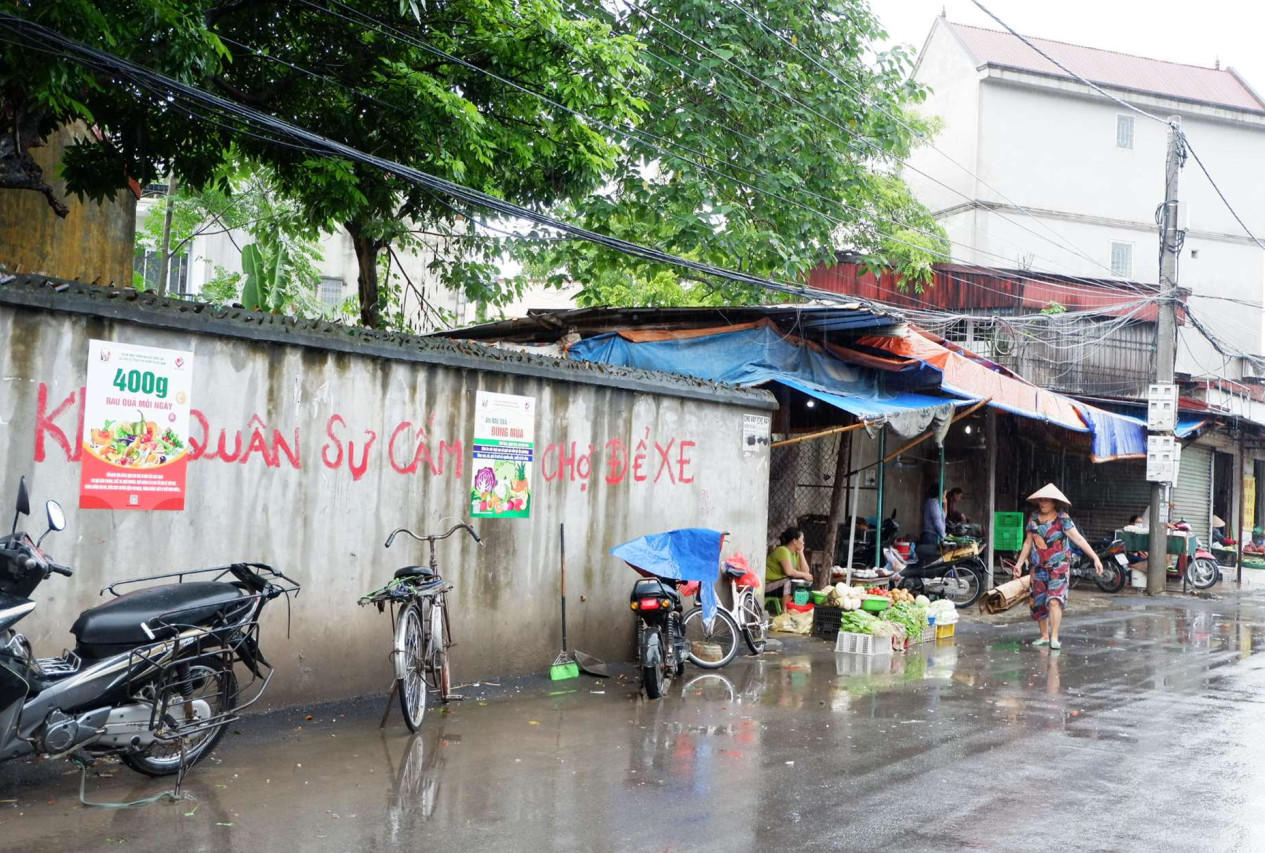
Posters on the wall in a local market in Hanoi. Photo Credit: NIN
Engaging consumers who are the target of the promotional campaigns in their design led to the creation of a locally specific and targeted activities and messaging. It also allowed a more flexible response to the Covid-19 pandemic, which started just after the first co-creation workshops were held. The teams were able to navigate and adapt to the changing restrictions on social gatherings. Dr. Trương Tuyết Mai, lead investigator at NIN in Hanoi shared how:
“in the context of Covid-19, the usage of both direct channels, such as training courses, and indirect channels, such as online consultation and Zalo chat groups, has been effective and needs to be extended.”
Folake Samuel, lead investigator at the University of Ibadan, explained that “co-creation as a tool, gave a sense of belonging and ownership. The local dynamics and nuances that are not immediately apparent to the researchers were revealed and this helped shape the interventions' effectiveness for their population”. The process has inspired a sense of agency among cocreators to promote fruit and vegetable consumption. For example, Iya Dada, a cocreator in Ibadan reported:
“Since I attended your workshop I have been telling people at my place of work that they should eat 5 portions of fruits and vegetables daily which is 400g. I tell them that 50 naira watermelon is 1 portion which is 80 g.”
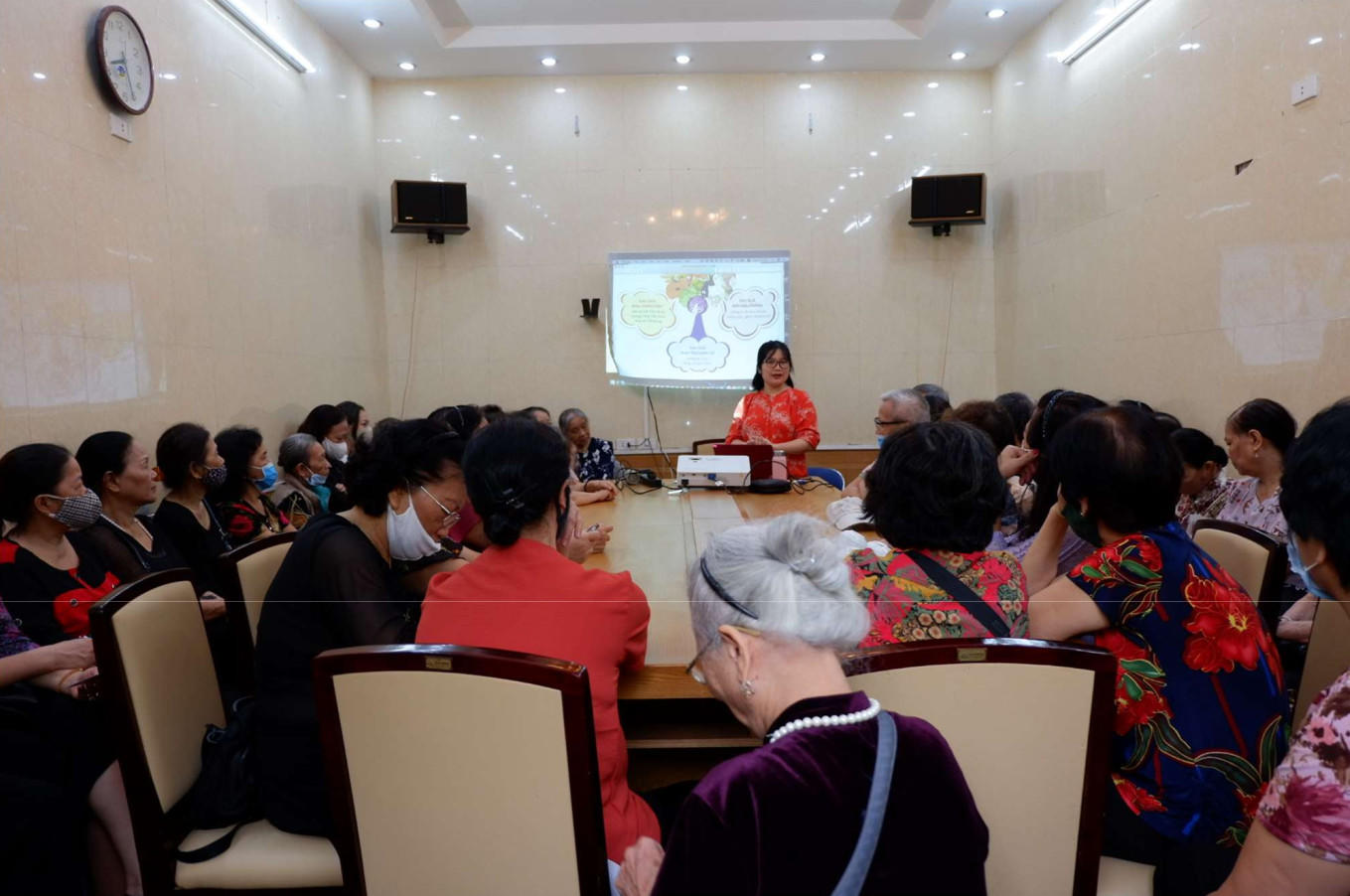
Nutrition education group in Hanoi. Photo Credit: NIN
At the start of the project, a barrier analysis revealed a low awareness of the importance of daily fruit and vegetable consumption in the focal neighbourhoods in Ibadan. In Hanoi, knowledge of the health benefits of fruit and vegetables was found to be a significant driver of their daily consumption. In this context, there is a good chance that the promotional campaigns will encourage more sufficient fruit and vegetable consumption in both sites. The endline surveys are in progress, which will provide detailed insight into dietary trends, as well as knowledge and attitudes about fruits and vegetables before and after the interventions.
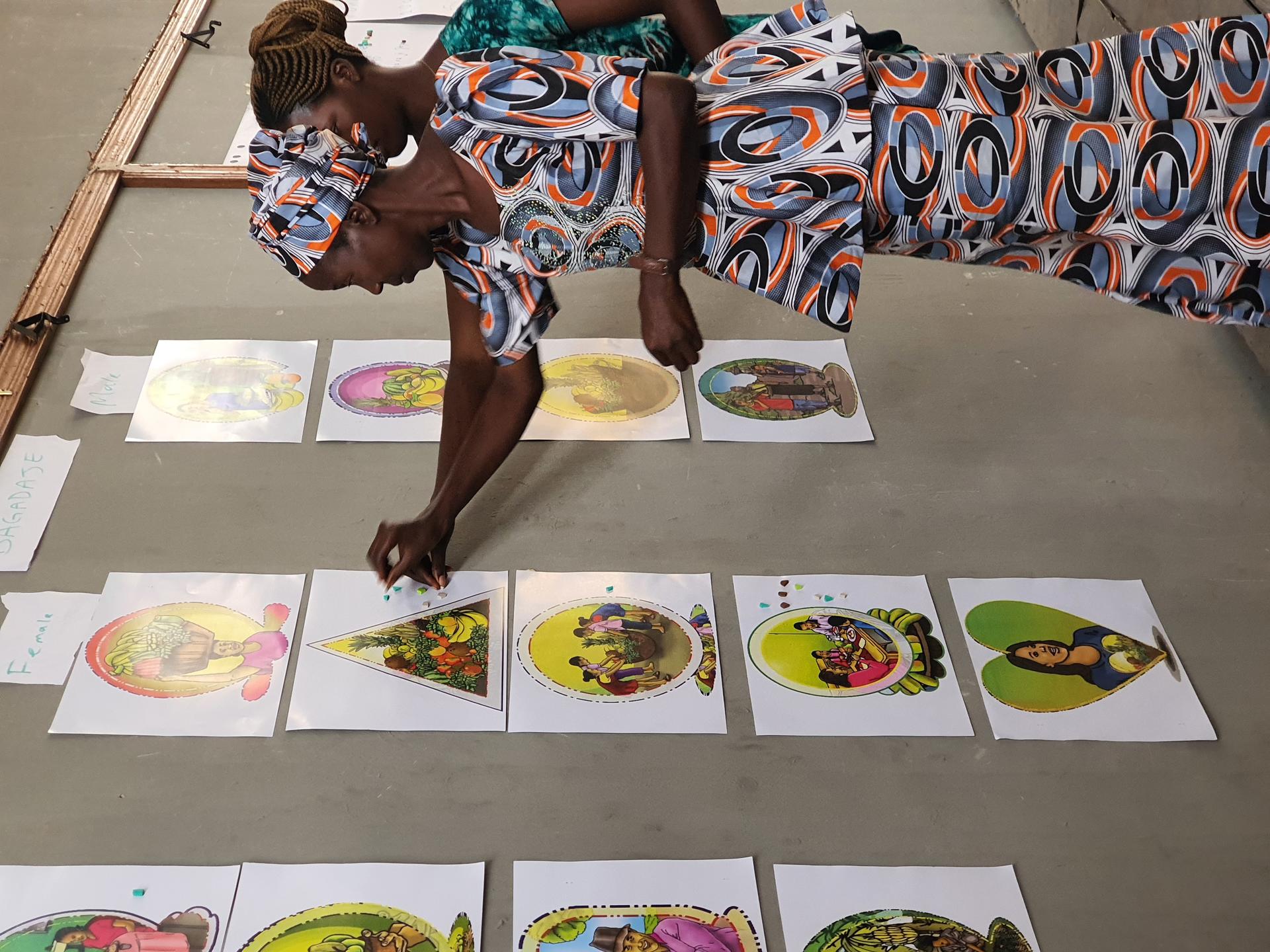
Cocreators voting on their favourite logo design in Ibadan. The group proposed the designs that were mocked up by a graphic designer. Photo Credit: Bamsa, G.
This work is part of a greater initiative led by Wageningen University with funding by the Bill and Melinda Gates Foundation entitled “Increasing fruit and vegetable intake in low-income population in Vietnam and Nigeria through food system innovations.” The barrier analysis study that was just published in Global Food Security revealed several other drivers of fruit and vegetable intakes beyond nutritional awareness. Affordability stood out as an important barrier to fruit and vegetable consumption in Ibadan. In Hanoi, family preferences and home production were other factors that influenced fruit and vegetable intakes. Encouraging dietary change in these two cities will clearly involve multifaceted interventions to improve access and affordability of fruits and vegetables as well as awareness of their health value. Other partners in the project have been devising interventions addressing affordability and access issues.
Where fruit and vegetable consumption needs a boost worldwide, lessons from these campaigns can offer some inspiration for action in other contexts.
By Gennifer Meldrum with inputs by Godwin Bamsa, Phuong Ngothiha, and Amanda De Fillippo.
